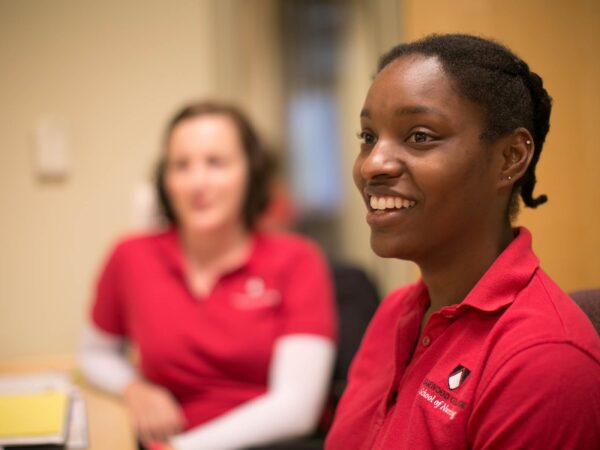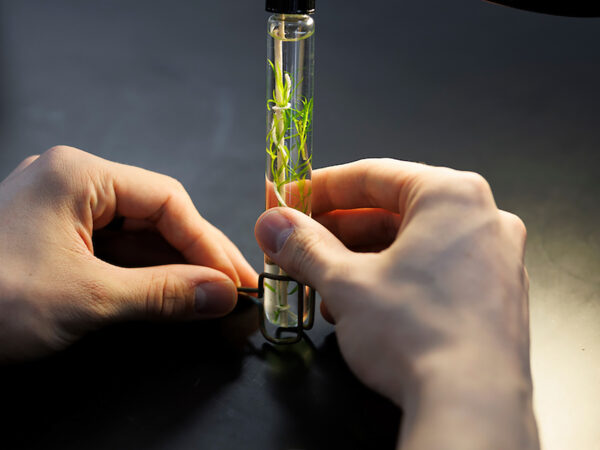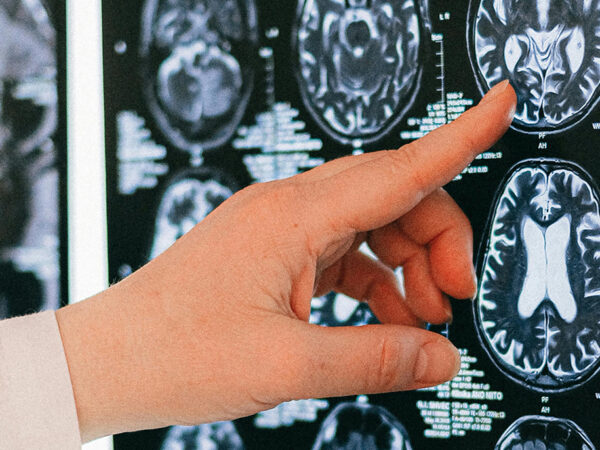Bachelor of Science in Health SciencesSchool of Arts and Sciences
Images that diagnose
You’ve always been interested in health care and being a part of the discovery process with patients. Edgewood University offers a Bachelor’s in Health Sciences degree with two concentrations: medical sonography and radiography. This degree is multidisciplinary, exploring a variety of different topics to prepare you for either concentration. Additionally, students will be prepared should they desire to pursue an advanced degree in a health-related master’s program.
As a Health Sciences major in either concentration, you will apply to complete two (2) full years in an internship at UW Health. A highly competitive program with excellent certification and employment success; the curriculum is designed to specifically improve Edgewood University students’ likelihood of acceptance.
Medical Sonography Concentration
Medical Sonographers perform diagnostic ultrasound examinations and work under the guidance of physicians. You’ll employ ultrasound, or high-frequency sound waves, to detect and diagnose diseases in body organs and tissues.
Radiologic Technologists perform diagnostic imaging examinations and work under the guidance of radiologists. They use different kinds of ionizing radiation to identify and/or treat disease and to diagnose medical problems.
Madison, WI
On-campus
120
August 25, 2025
Careers within Sonography
$82,570
Average annual salary for a Diagnostic Medical Sonographer
A Bachelor’s degree in Health Sciences prepares you for a variety of career paths. Those marked with an asterisk (*) require additional education/certification.
- Diagnostic cardiovascular sonographer*
- MRI technician
- Obstetric sonographer*
- Radiologic technologist
- Radiation therapist
- Sonography technologist
- Travel ultrasound technologist
Health Sciences by the Numbers
100%
acceptance into Radiography program in 2023 and 2024
100%
job placement over past five years in Radiography
100%
internship placement in 2022-2023 in Radiography
90%
Specialty Area Exams Pass Rate
100%
job placement in Sonography
1800
clinical hours in 30 sites
Featured Courses
Biology 210 Anatomy and Physiology I
This course is the study of structure and function of the cells, tissues, skin, skeletal, muscular, and nervous systems of the human body. The class has three lectures and one two-hour lab per week. The blended online section completes the same lecture material through online coursework, and meets weekly for one, three-hour session consisting of the lab and a one-hour discussion.
Nursing 390 Research and Evidence Based Practice in Nursing
This course is designed to introduce the topic of research and evidence-based practice. The main focus of this course is on the iterative process of identifying practice questions; searching, appraising, and synthesizing relevant evidence; planning and implementing practice changes; evaluating outcomes; and identifying potential areas for further improvement. Processes for leading and managing change, and ethical issues are also explored.
Psychology 101 General Psychology
An introduction to psychology as a science. Emphasis on major topics and areas of research in psychology including: biology and behavior, perception, memory, learning, states of consciousness, emotions, personality, psychological disorders, and psychotherapies.
Student Organizations
Achievement in Medicine
Achievement in Medicine (AIM) brings together students who are thinking of pursuing a degree in the medical/health field post-graduation. Guest speakers include doctors, physical therapists, physician assistants, dentists, pharmacists, and other individuals with other medical specialties have presented to members of AIM. Resources for MCAT/GRE as well as volunteer and shadow experiences are available through this organization.
Related Programs
-

On-campus
Bachelor of Science in Nursing -

On-campus
Bachelor of Science in Biology -

On-campus
Bachelor of Science in Neuroscience
Frequently Asked Questions
Does clinical work start before the internship?
No, for both programs, students must be accepted into the program to participate in the internship (which is a combination of both academic and clinical experiences). Academic and clinical days alternate.